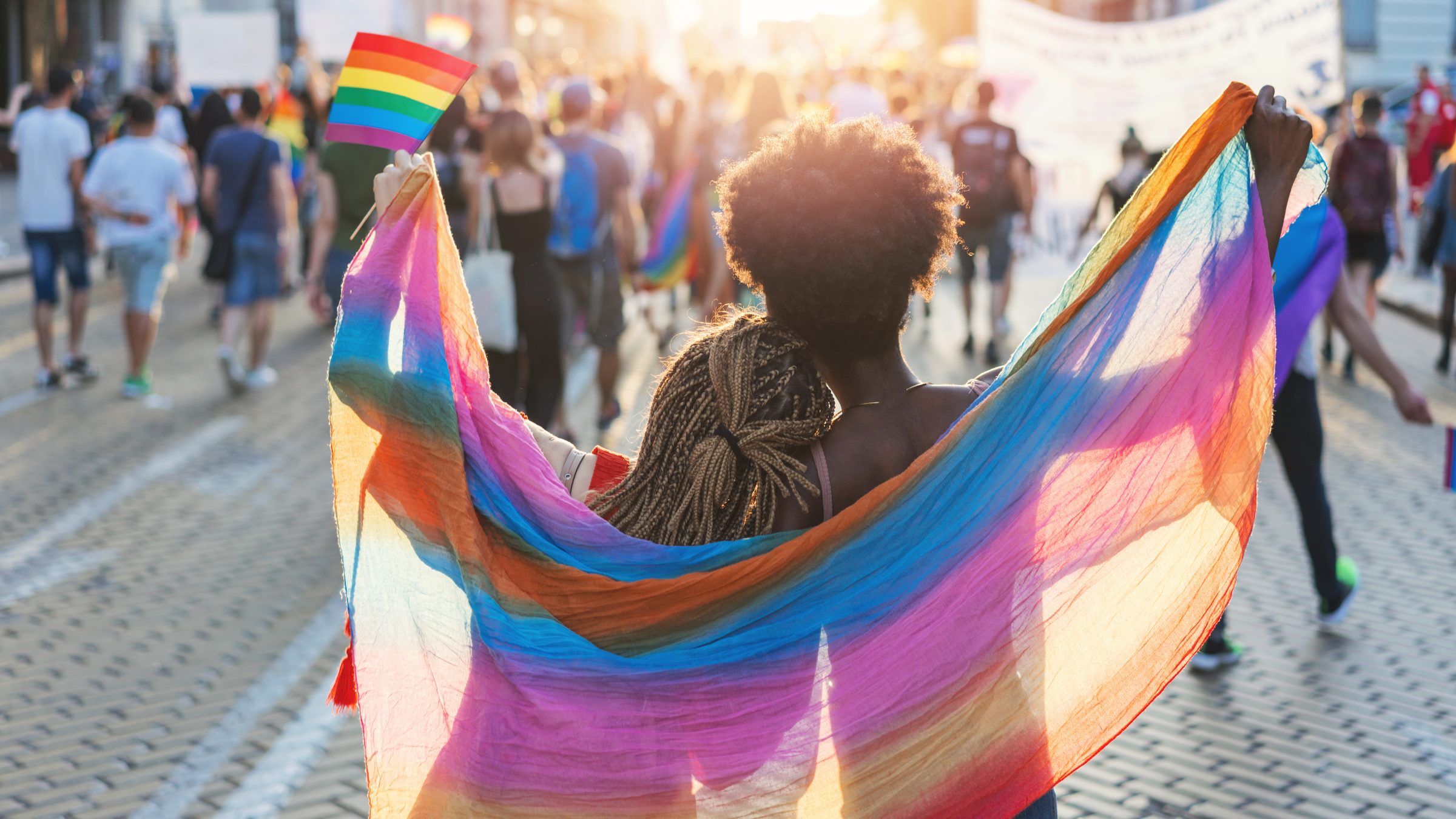Our News
Climate Change & The LGBTQ+ Community

Taking place in June each year, Pride Month is dedicated to celebrating LGBTQIA+ Pride, whilst recognising and honouring those who were involved in the 1969 Stonewall Uprising. During this month, we feel it is particularly important to recognise that without LGBTQIA+ justice, there is no climate justice.
While Pride events take place all over the world to celebrate LGBTQIA+ rights and inclusivity, at its root, the fundamental reason that Pride exists is because this community is still fighting for its survival, and still standing up against violent behaviours and emotional and physical abuse. While the community has come a long way in fighting for equal rights, the justice for LGBTQIA+ people in the climate sphere is lacking.
Although climate change does, and will continue to, affect everyone, it does not affect all groups equally. With climate change comes inequality, and the IPCC reported that those who already face marginalisation are especially vulnerable to the effects of climate change. While still fighting for acceptance in today’s society, this charismatic and inclusive community remains a socially vulnerable group, and are often hidden victims of climate change.
The Homelessness Crisis
Poverty is more commonly found within the queer community, as finding employment can be extremely challenging. Studies have shown that the unemployment rate for transgender people is three times higher than the rest of the general population, and even higher again for black transgender people.
With unemployment often comes homelessness, a harsh reality unfortunately felt by too many queer individuals. AKT, a UK organisation supporting LGBTQIA+ homeless youth, found that in the UK, 24% of homeless young people are LGBTQIA+ individuals. One individual that used their support services said: “It’s difficult to be the queer person and also the homeless person.”
US non-profit organisation, True Colours United, found that LBGTQIA+ youth are 120% more likely to experience homelessness, and that just under half of the US homeless population is made up of LBGTQIA+ individuals and transgender people of colour.
Homelessness doesn’t necessarily mean living on the streets. For some it can mean living in a car, staying in a homeless shelter, couch-surfing, or using short-term accommodation like hostels and B&B’s. Nevertheless, the lack of stable housing is extremely distressing, and will become more challenging as the climate changes. Those without a permanent home feel the hot summer heatwaves and freezing cold winters, the storms, flooding, hail showers and blizzards, most directly. Not to mention the exposure to dirty air and water and the potential associated severe health impacts.
When Disaster Strikes
The discrimination of the LGBTQIA+ community is emphasised when it comes to climate disaster. By not having the same social rights as the rest of the population, LGBTQIA+ people face greater problems during and after climate disasters, e.g. in accessing necessary medical services. In one incident at an emergency shelter following Hurricane Katrina, a transgender woman was jailed for showering in a women’s bathroom, even after a shelter volunteer allowed it. A spokesperson said that many of the women who were affected by the hurricane do not fit the traditional image of a ‘woman’, and so whilst trying to access relief, they instead were faced with sexism, homophobia and transphobia.
It is evident that while climate disasters do not discriminate, the recovery practices do.
Hope for the Future
There is strong intersectionality between the LGBTQIA+ community and the climate movement, and while queer individuals are disproportionately affected by climate change, the community’s resilience is inspiring. Having already experienced marginalisation, LGBTQIA+ people are equipped to tackle this. The community knows how to come together to build strong, supportive communities and there is a lot we can learn.
The strength of the LGBTQIA+ community is admirable and their voices powerful. By coming together, we can all use our voices to help the climate movement not just steer, but thrive towards a place of justice, togetherness, peace and inclusion.
Queer Environmental Activists and Organisations
Listed below are some environmental activists, creators, charities and platforms that you can check out and follow along with. Each one holds different resources for people to engage with. It is vital to listen to and amplify the voices of change-makers in this sphere.
If you are from the LGBTQIA+ community and would like to share a story in relation to climate justice, please contact us at [email protected] and we would be honoured to help amplify your voice, and share your experiences and thoughts.
We are working to increase the diversity and inclusion of our team. If you are an LGBTQIA+ individual, or from another group within society that needs stronger representation within the environmental sector, and are interested in working with our team, please keep an eye out for job openings, or apply for a volunteer role. If you feel you have something to add to our organisation, we would love your insight and to hear your voice.